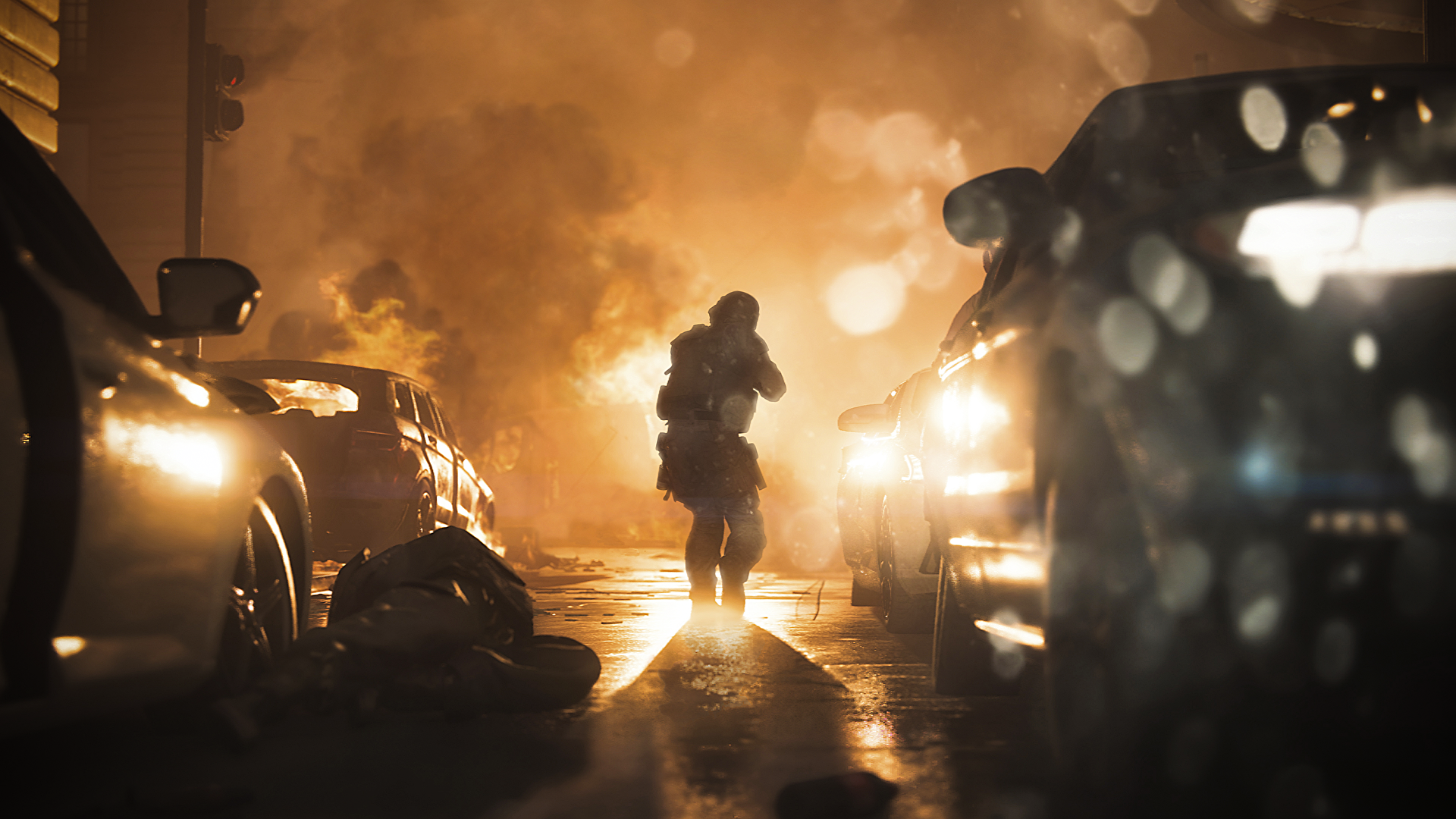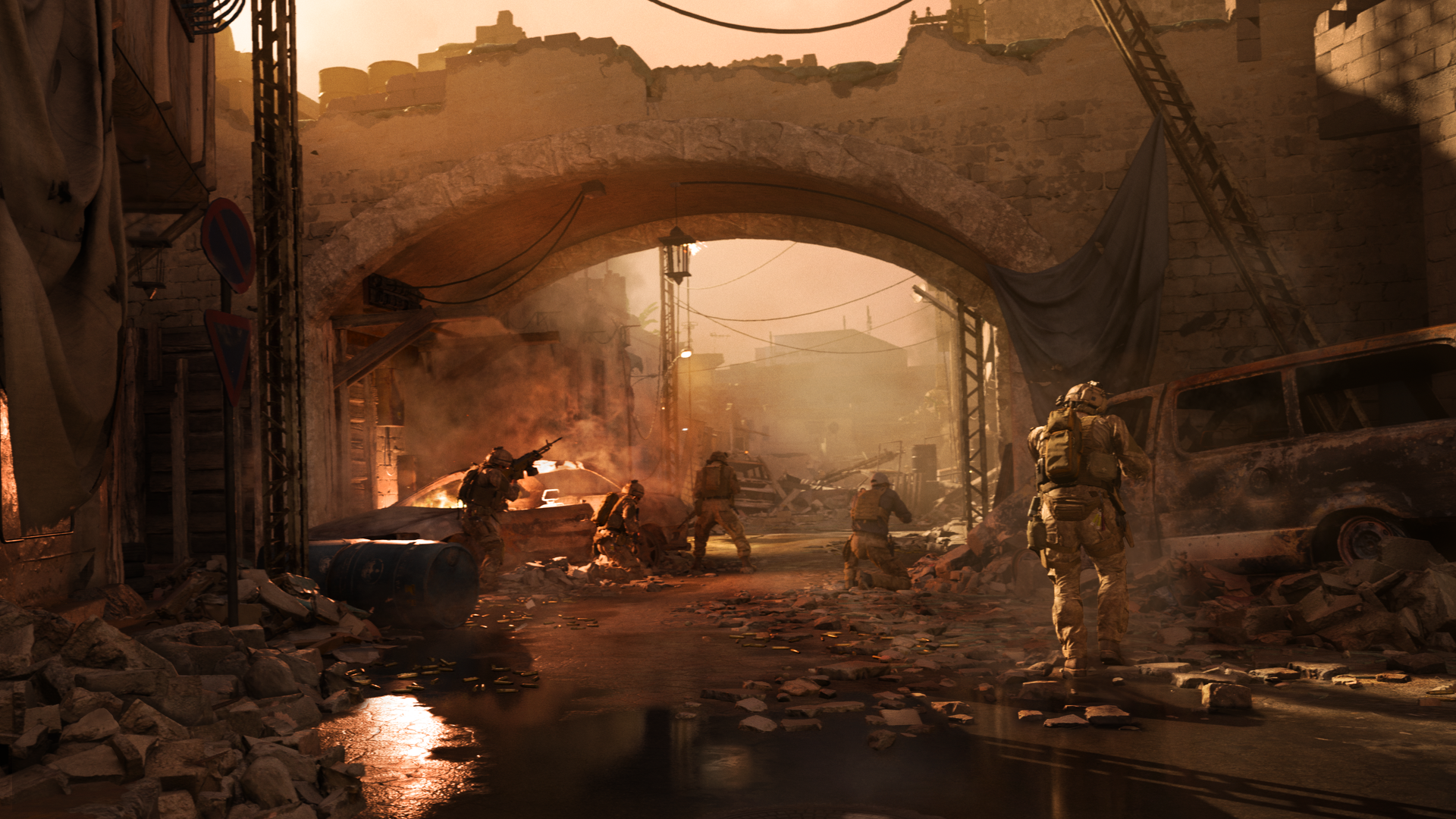‘Call of Duty: Modern Warfare’ Is the Forever War Game
Credit to Author: Emanuel Maiberg| Date: Mon, 28 Oct 2019 22:08:13 +0000
Call of Duty 4: Modern Warfare's release in 2007 largely defined big budget first person shooters for more than a decade. Whereas first-person shooters previously tended to focus on World War II's European fronts and sci-fi, Modern Warfare's massive success pushed games to start depicting wars the United States was and still is currently fighting.
It's been 18 years since 9/11, 16 since the invasion of Iraq, and 12 since the release of 2007's Modern Warfare. Since then, Call of Duty had two proper Modern Warfare sequels, games about wars in the near and far future, games about the Cold War, games about space war, games about a collapsed America, and a trip back to WWII. In all that time, the U.S. never stopped fighting the wars 2007's Modern Warfare brazenly decided to depict.
And now, Call of Duty: Modern Warfare is back as a reboot. A new game for a new era but the same wars. Its developers say it's not political, but that it deals with concepts like "colonialism, occupation, and independence and freedom." The result is a scrapbook of incomprehensible tragedy, pain, and war crimes: dead bodies of children emerging from rubble covered in dust, men with AK-47s firing in the streets of European cities, the attack on the American facilities in Benghazi, the raid on Osama bin Laden's compound. Modern Warfare is not a game that covers a war and packages it as a chapter in history. It is a concession that the wars it's depicting are a permanent feature of reality that will never go away.

Recent events are recreated in Modern Warfare as we remember them from CNN and movies like Zero Dark Thirty and Hurt Locker, but with a thin veneer of fiction that uses different names and places. Aesthetically, Call of Duty games never really had their own voice so much as the audacity to imitate the most bombastic action scenes from Hollywood movies. Previously, that meant heavily lifting from Michael Bay's school of constructing tummy-ache inducing chocolate sundaes of CGI explosions. In Modern Warfare, it means lifting from Kathryn Bigelow's lucid, no bullshit cinematography, which is also contrived but for now reads more like leaked war tapes than Hollywood blockbuster.
Modern Warfare's new conception of “gritty” and “real” is most noticeably expressed in how its guns sound, which matters a lot because that's almost all you do in Call of Duty games: shoot guns. Over the years, Call of Duty's guns began to feel like laser pointers. You point and shoot, and it's satisfying because they do what you expect, but they're inconsequential. In Modern Warfare, every shot explodes out of an assault rifle and shakes the screen. Every gun is still a reliable tool with predictable behaviors that can be mastered, but it also bucks like a horse that is barely tamed.
When these guns are paired with some ripped-from-the-headlines levels, Modern Warfare successfully shocked and enthralled me the way the original did in 2007. The level that is clearly based on the 2012 attack on the American facilities in Benghazi stands out as the most shocking, and the best designed Call of Duty level in years. It's a straightforward mission through a contained space: I land on the roof of the embassy, escort a high value target out of the building, and lead them to a nearby location where they can be extracted.
I touch ground right as worst fears become reality. The outside security wall has been breached, and the only thing that's standing between the mundanity of a modern office and dozens of armed men intent on killing anyone in their path is bulletproof glass and a few locked doors. Those barriers break, and Modern Warfare relishes in the horror. A woman, already wounded, crawls away from an attacker, only to be turned over and executed. At one point, Modern Warfare directs your attention to child who is shot in the head at point blank range.
Before there is time to process any one horrific image, Modern Warfare hustles me along to the next one, and as this circle of horror tightens around me I start to panic. Just when I think I've found a safe rooftop to hold my ground, more pickup trucks crammed with fighters show up. Mortar shells land around me, and with each wave of attack they get closer. I'm running out of ammo, and they don't stop coming. Maybe it's one of those Call of Duty levels where I'm supposed to die, I think, and the fact that I don't know for sure speaks to how conivingly harrowing the experience is.
To what end does Modern Warfare mine these horrific images, inspired by real world events? It takes place in the fictional country of Urzikstan, which is so blatantly based on Syria that it is cowardly to call it anything else. Urzikstan is decades into a civil war, and one of the factions fighting there has stolen a chemical weapon from Russia. The player—sometimes taking the role of elite soldiers from Western countries and sometimes in the role of a rebel leader modeled after the women, mostly Kurdish, fighting in Syria—needs to hunt down the chemical weapon before it's used. Modern Warfare implies a sense of urgency since it might be used in a Western country.
Modern Warfare's position is that some of the people fighting in this civil war, like a sadistic Russian general or the people who stole his chemical weapons, are bad. Some of the people, like American soldiers or the rebel fighters they're allied with, are good. Sometimes the good people do the same things the bad people do, and sometimes the bad people do the same things the good people do. It's a minimally nuanced take on a very real mode of conflict currently taking place in Syria.
Modern Warfare's position on U.S. military hegemony, in contrast, is not nuanced at all. The game’s take is that American global militarism is not only good but the natural, innate order of things. Where Western powers have total control over other places and people, things are good. Where they lose that control, either to Russia or various rebel factions, there is chaos and death.
Where real history doesn't match that narrative, Modern Warfare rewrites it. There's a level that takes place in what looks almost exactly like the so-called Highway of Death, a burnt out convoy of Iraqi vehicles that the U.S.-led coalition obliterated while they were in retreat during the Gulf War. In Modern Warfare, it's the Russians who bombed it. There's a waterboarding scene, a form of torture that the U.S. used and was the subject of fierce debate here for years. In Modern Warfare, again, it's the Russians who use it.

This worldview is also evident in Modern Warfare's attempt to populate its levels with civilians. Not good guys or bad guys, but the people who are caught in the middle. During the level inspired by the raid on bin Laden's compound, for example, I move carefully through a house where there are both fighters who are waiting to kill me, and women and children. This is a scenario that repeats several times throughout Modern Warfare, and shooting civilians leads to a failure state that requires reloading to a previous point. Sometimes, in a naked attempt to shock, a woman will reach for a weapon, in which case it's safe and good to kill her.
And so the difference between civilian and enemy is binary: when they're running and hiding from me, they are civilians. When they shoot back or even reach for a gun, they are terrorists. There's nothing in between. What they believe, who they are, or their ideology, doesn't make a difference. Modern Warfare goes out of its way to make that clear: Russians, Americans, rebels—they all get dirty in their struggle for power. What defines an enemy in Modern Warfare is to stand in the way of the player, an avatar of Western supremacy. Modern Warfare isn't even saying that this total control over the world is good, only that to stand in its way is punishable by death.
It was particularly surreal to play Modern Warfare this weekend, as President Donald Trump told the world that the leader and founder of ISIS, Abu Bakr al-Baghdadi, killed himself and three children with explosives as U.S. special forces closed in. The level inspired by the raid on Osama bin Laden's compound in Abbottabad embellishes the events to make them more exciting and longer so there's more for level designer to work with. But bizarrely, many of the ways Modern Warfare embellishes the bin Laden raid make it match the details of al-Baghdadi's death. This, I think, doesn't speak to Call of Duty's ability to predict the future, but the futility of these raids. While the team behind Modern Warfare was busy digitally recreating bin Laden's death, the U.S. managed to kill the next figurehead that replaced him in our consciousness. I'm not aware of any evidence that suggests that an equally awful figure won't rise in his place.
More than anything, all of this helps to explain why Call of Duty games have been about the same wars for more than a decade—wars that the U.S. can't win because it doesn't know what winning looks like, and that it can't afford to lose because it imagines that whatever comes after ceding control is worse than waging forever war.
This article originally appeared on VICE US.